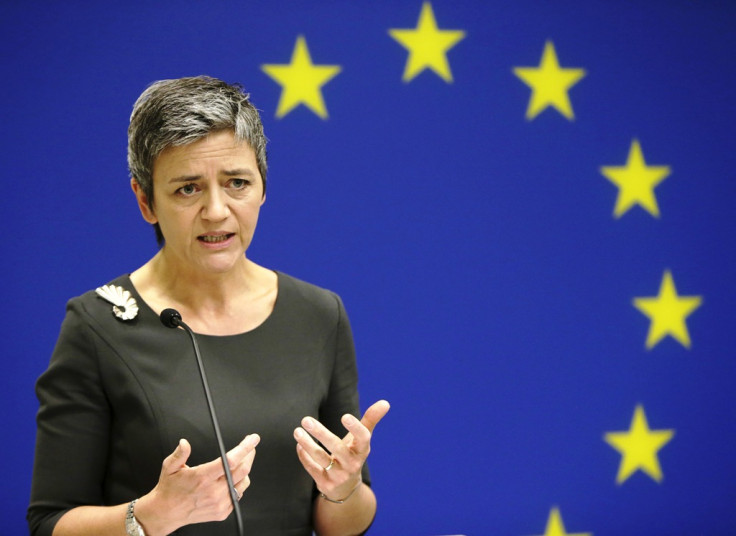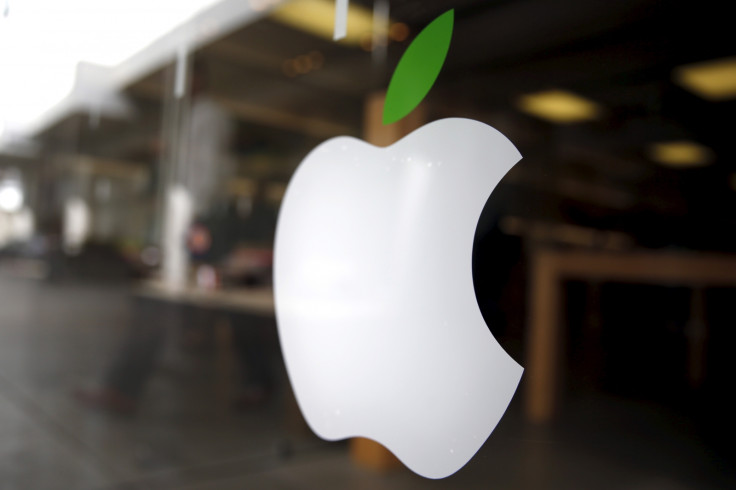Apple ordered to pay Ireland €13bn in back taxes by EU regulators
EC rules that tax arrangements between Apple and Ireland broke laws on state aid.
Ireland should collect up to €13bn (£11.1bn, $14.5bn) from Apple in back taxes, according to EU regulators. This is the largest ever tax penalty the EU has ever handed out.
EU regulators said earlier tax arrangements struck between Ireland and the US technology firm broke European rules on state aid, as they allowed Apple to pay less tax than rival firms.
Competition commissioner Margrethe Vestager said: "The commission's investigation concluded that Ireland granted illegal tax benefits to Apple, which enabled it to pay substantially less tax than other businesses over many years.
"In fact, this selective treatment allowed Apple to pay an effective corporate tax rate of 1% on its European profits in 2003 down to 0.005% in 2014."
Ireland's finance minister and Apple said they both intend to appeal against the decision.
The EC said two tax agreements agreed between Ireland and Apple in 1991 and 2007 gave the tech firm "a significant advantage over other businesses that are subject to the same national taxation rules".
The Commission concluded: "Ireland must now recover the unpaid taxes in Ireland from Apple for the years 2003 to 2014 of up to €13bn, plus interest."
Irish finance minister Michael Noonan said he intends to appeal the EU ruling, adding that he disagrees "profoundly" with the Brussels decision.
Noonan said: "The decision leaves me with no choice but to seek cabinet approval to appeal."
"This is necessary to defend the integrity of our tax system; to provide tax certainty to business; and to challenge the encroachment of EU state aid rules into the sovereign member state competence of taxation."
Apple warned the ruling threatened the creation of new jobs in Europe. It added it is responsible for 1.5 million jobs across the continent, including developers, suppliers, as well as staff who work directly for the tech giant.
The tech firm said: "The European Commission has launched an effort to rewrite Apple's history in Europe, ignore Ireland's tax laws and upend the international tax system in the process.
"The Commission's case is not about how much Apple pays in taxes, it's about which government collects the money. It will have a profound and harmful effect on investment and job creation in Europe."

"Apple follows the law and pays all of the taxes we owe wherever we operate. We will appeal and we are confident the decision will be overturned."
The EC opened its investigation into Apple's tax arrangements with Ireland two years ago.
Online giant Amazon and fast food chain McDonald's face similar EC probes over taxes in Luxembourg, while coffee chain Starbucks has been ordered to pay up to €30m to the Dutch state.
A €300m order handed out this year to Swedish engineer Atlas Copco to pay the Belgian government is the second highest EU back tax bill.
The EC is also understood to be studying the European tax arrangements of online search giant Google.
However, the US Treasury Department warned that EU's Apple ruling threatened the existing bilateral "spirit of economic partnership".
A spokesman said: "The Commission's actions could threaten to undermine foreign investment, the business climate in Europe, and the important spirit of economic partnership between the US and the EU."
"We will continue to monitor these cases as they progress, and we will continue to work with the Commission toward our shared objective of preventing the erosion of our corporate tax bases."
The US Treasury is understood to be concerned that a big EU tax bill for Apple, will then see Apple offset at least some of that charge against the tax it would otherwise pay in the US.
The US Treasury Department warned last week that the EC was in danger of becoming a "supra-national tax authority" overriding the tax codes of the 28 states that currently below to it.
When the EC started its probe into Apple in 2014, it suspected Ireland of dodging international tax rules by letting Apple shelter profits worth tens of billions of dollars from tax collectors in return for maintaining jobs.
Apple employs almost 6,000, or about a quarter of its Europe-based staff, in the Irish city of Cork, where it is the largest private sector employer. It has said it paid Ireland's 12.5% rate on all the income that it generates in the country.
Ireland's low corporate tax rate has been a cornerstone of its economic policy for some 20 years, attracting multinational companies whose staff account for almost one in 10 workers in Ireland.
Apple chief executive Tim cook added: "We now find ourselves in the unusual position of being ordered to retroactively pay additional taxes to a government that says we don't owe them any more than we've already paid."
The decision leaves me with no choice but to seek cabinet approval to appeal. This is necessary to defend the integrity of our tax system; to provide tax certainty to business; and to challenge the encroachment of EU state aid rules into the sovereign member state competence of taxation.
The tech giant's £13bn tax bill could build 20 new hospitals, or almost triple the scope of the Irish government's social housing programme, said The Irish Times.
Apple's shares fell more than 2% in pre-market trading in New York after the EC announced its ruling.
Naeem Aslam, chief market analyst at broker Think Markets, said: "This is really an eye popper for other firms which also have a favourable deal with Ireland and have their operation in this country."
"As for Ireland, the country will leave no stone unturned to defend its industry from crumbling because if these major tycoons start to rekindle their longer term strategy by leaving or moving major operations, it could be devastating for its growth."
A tax partner at one of the big four accounting firms said a final decision may take "several years" while the case is appealed in higher EU courts.
However, the partner added that Ireland may have to begin collecting the back tax from Apple within two months, with any monies collected held in an escrow account until a final court decision is reached.
Apple reported earnings of $18bn last year, the biggest ever reported by a company. The tech group also has cash reserves in offshore accounts that total around $200bn.

© Copyright IBTimes 2025. All rights reserved.






















